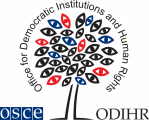
Highlights of the FURIC 2024
From Ballots to Security
Strengthening Security with Observer Recommendations
Back to the Future: Recommendations for Policy Making
The year 2024 was marked by an unprecedented number of elections, including significant ones in the United States and the European Union. Equally unprecedented was the scale of threats to election integrity, driven by disinformation, cyberattacks, foreign covert operations, and physical violence. Awareness of these hybrid threats to democratic elections – and their impact on the security of countries and societies – has grown in both established and emerging democracies. It has become critical for election stakeholders to assess these risks and adapt electoral systems to counter such hybrid threats effectively.
In this panel, speakers will discuss strategies to combat hybrid threats in recent elections and outline the next steps needed to adapt electoral systems to evolving challenges. They will specifically address anticipated trends in electoral reform, driven by recommendations from election observers, and the vital role of civil society in reinforcing democratic electoral processes
This session will discuss how to promote a comprehensive framework for the follow-up and implementation of electoral recommendations to ensure that democratic elections enhance international security. It should reflect the questions whether there is a wider interest among democratic states to improve the framework for the follow-up on recommendations process and what the potential instruments for strengthening the process might be. Speakers will explore synergies between state and non-state actors, including technology companies, to advocate for enhanced electoral reforms and collaborate in preventing and countering hybrid threats to democracy.
What actions should be taken, and by which actors, to improve the framework for follow-up and implementation of electoral recommendations in light of evolving technologies, disinformation, and the growing challenges posed by hybrid threats?
Where are the potential synergies between state and non-state actors in addressing hybrid threats through electoral reforms? What limitations do these actors face?
How can we anticipate future challenges during electoral reforms, especially given the rapid pace of technological advancements?
How can technology companies contribute to reforming electoral processes to better counter hybrid threats?
Recommendations and reforms are rooted in the findings of election observers. This roundtable discussion will explore ways to enhance observation methodologies to improve the accuracy and rigor of these findings. While hybrid threats often leverage technological advancements, many electoral stakeholders remain consistent, operating within traditional election structures. As a result, certain observation tools, such as a focus on human rights and in-depth analysis of election management, may still be effective. However, other aspects of observation—such as data collection, the duration of observation, and the focus on foreign actors—may need reconsideration.
How well are international observation methodologies adapting to address hybrid threats in elections?
Are observation methodologies keeping pace with technological advancements?
Are observers able to collect critical data, and is that data readily accessible?
What political, financial, or organizational constraints do observers face in adapting their methodologies?
Election observers are just one of many key electoral stakeholders, and their work requires strict political neutrality and non-interference. Observers collect and analyze data from other stakeholders, with their access dependent on the value of sustained, cyclical engagement with their counterparts. In the post-election follow-up phase, especially citizen observers can play a more active role. This roundtable will explore ways to strengthen synergies between international and citizen observers, election administrations, the election assistance community, security agencies, and private actors such as technology companies, to enhance follow-up activities and better counter hybrid threats.
Who are the key stakeholders in countering hybrid threats through electoral reforms and other adaptive measures?
What is the role of international and citizen observers? Is their contribution consistently perceived as constructive and well-founded?
What are the limitations to greater cooperation between electoral stakeholders in addressing hybrid threats? Can some of these barriers be overcome through behavioral changes, methodological adaptations, or by identifying shared interests?
Many hybrid threats to elections rely on advanced technologies for impact. Cyber-attacks on election infrastructure, especially those backed by foreign states, use sophisticated methods. On social media, the creation, distribution, and targeting of narratives are driven by complex algorithms. The increasing use of artificial intelligence to spread disinformation and influence elections demands special attention. This roundtable will explore how election observers can improve their preparedness to identify, analyze, and counter these evolving threats. The substantial resources deployed by malicious actors in hybrid attacks make the work of observers particularly challenging. Additionally, the discussion will assess the risks and benefits of using AI-powered and automated tools in election observation, focusing on how these technologies can enhance observation efforts and ensure effective follow-up on electoral recommendations.
What key threats do emerging technologies pose to election integrity, and how do they impact democratic resilience and security?
What technical improvements can observers adopt to better address hybrid threats and modern election interference? How can these tools integrate into existing frameworks to improve resilience?
What skills and training do observers need to counter technological threats? Which stakeholders and partnerships can strengthen their capacities?
What are the benefits and risks of AI-powered tools in election observation? How can issues like privacy, ethics, and bias be addressed to ensure responsible use?
Election observers are just one of many key electoral stakeholders, and their work requires strict political neutrality and non-interference. Observers collect and analyze data from other stakeholders, with their access dependent on the value of sustained, cyclical engagement with their counterparts. In the post-election follow-up phase, especially citizen observers can play a more active role. This roundtable will explore ways to strengthen synergies between international and citizen observers, election administrations, the election assistance community, security agencies, and private actors such as technology companies, to enhance follow-up activities and better counter hybrid threats.
The role of advanced technologies, such as AI and algorithms, in cyber-attacks, disinformation, and election interference.
The challenges and opportunities for election observers in adapting to these technological threats, including the use of AI-powered and automated tools in election observation.
The sources and impact of political polarization, the proliferation of hate speech, and the use of divisive narratives in disinformation campaigns.
How election stakeholders—including international and citizen observers, election administrators, technology companies, and security agencies—can collaborate to improve electoral reforms and better counter hybrid threats.
Drawing on global and regional developments, the panelists will also explore how international and citizen election observation can continue to contribute to enhancing security and ensuring the integrity of democratic processes.
Vlad Voiculescu is a Member of the European Parliament with a diverse background in healthcare advocacy, social entrepreneurship, and finance. He served as Chair of the European Society for Medical Oncology (ESMO) Patient Advocacy Working Group (2019–2021), and co-founded Asociatia Magic, a social enterprise supporting children with severe illnesses (2014–2020). Voiculescu has held leadership roles in patient advocacy, including as Vice President of the European Cancer Patient Coalition (2013–2016) and founder of the “Cancer Drugs Volunteer Network” (2008–2016).
Nino is a civil activist and freedom fighter from Georgia. Currently, she is an Executive Director of International Society for Fair Elections and Democracy (ISFED), a key election watchdog in Georgia. Before joining ISFED, she worked at the International Republican Institute (IRI) for eight years, leading the Election Program, Developing Multi-party Democracy and Political Empowerment of Women. She has participated in more than 20 domestic and international election observation missions, including OSCE/ODIHR, IRI, NDI, and ENEMO, in Georgia and abroad.
Petras Auštrevičius is a Member of the European Parliament, actively contributing to foreign policy, human rights, and security. He serves on the AFET Committee on Foreign Affairs, the DROI Subcommittee on Human Rights, and the SEDE Subcommittee on Security and Defence. Additionally, he is a member of the Delegation to the EU-Ukraine Parliamentary Association Committee (D-UA), reflecting his commitment to fostering EU-Ukraine relations.
Since 2014, Auštrevičius has been a Vice-Chair of the ALDE Group in the European Parliament, demonstrating leadership in advancing liberal values across Europe. His extensive experience underscores his dedication to strengthening international cooperation, promoting democracy, and addressing global security challenges.
Founder and Director of the European Exchange gGmbH in Berlin. Stefanie Schiffer studied Slavonic languages and Eastern European History in Tübingen and Munich. She has a broad experience in cooperation with civil society organisations in Eastern Europe. She has been a founding member and initiator of several civil society cooperation programs and international platforms as the EU Russia Civil Society Forum, the EPDE, the Kyiv Dialogue and the Initiative Quorum. She has been an advisor to the board of the Marion Dönhoff foundation and to the filia Frauenstiftung, a member of the Heinrich Böll Stiftung and a board member to the organization Human Rights in Belarus e.V.
Zofia participated in and coordinated numerous observation missions in Poland and abroad, including Ukraine, Georgia, and Kyrgyzstan. She works to support civic activity in the post-Soviet space – previously as a coordinator for Belarus at the Batory Foundation, or as a development cooperation coordinator at the European Union Delegation in Uzbekistan, and currently as a consultant at the European Endowment for Democracy. Zosia is a graduate of European studies at the University of Edinburgh and European interdisciplinary studies with a specialization in Eastern studies at the College of Europe in Natolin.
Adam holds degrees in Politics and Journalism from Poland and Eastern European Studies from Germany, with a focus on alternative movements in communist Poland and election monitoring in post-Soviet countries. With over 20 years of experience in election monitoring, he has served in various roles, including as a long- and short-term election observer, core team member, and leader of research and capacity-building projects. Adam has also worked extensively as a trainer, supporting the development of election observation networks. He was actively involved in founding the European Platform for Democratic Elections (EPDE) in 2012 and initiated the FURIC conference in 2023. Currently, he focuses on enhancing citizen election monitoring methods and strengthening cooperation between observers and key stakeholders.
Alex worked for more than 10 years in the Election Department of the OSCE Office for Democratic Institutions and Human Rights, from 2016 to 2021 as the Head of the Department. Now Alexander serves as a Special Representative of Sviatlana Tsikhanouskaya on Elections and consults national authorities and international organizations on election-related matters.
Vladimir is the OSCE/ODIHR Senior Advisor on New Voting Technologies. He has been working for ODIHR since 2015 and has been part of more than 100 election observation activities across most OSCE participating States. Vladimir has also coordinated and contributed to the development of ODIHR’s observation methodology, particularly regarding the use of Information and Communication Technologies in Elections and the observation of election campaigns, including those conducted on social networks and online media.
Mulle is the National Coordinator for the Elections Observation Group (ELOG) as well as the Regional Coordinator for the East and Horn of Africa Elections Observation Network (EHORN) which brings together citizen observation platforms in the eastern Africa region. He has been involved in electoral governance related activities since 2007 working as a trainer and administrator for the National Democratic Institute for International affairs during the General Elections program in Kenya.
Since January 2020, Ulvi has served as Deputy Head of the Election Department at ODIHR, where he oversees the administration, operational planning, and implementation of election-related support to OSCE participating States. His work is focused on improving democratic processes through election observation missions and technical assistance.
Ken has led the European Partnership for Democracy since 2015. Prior to joining EPD, Mr. Godfrey worked as an Electoral Advisor for the UN Integrated Mission in Timor-Leste. He has also worked for the European Union Police Mission in Afghanistan, at the European Parliament and as an external consultant for the European Commission. He holds a Master’s degree from the London School of Economics in Comparative Democratisation. Mr. Godfrey has also lived and worked in Argentina, Canada, China, Japan, Senegal and the United Kingdom.
David is the Executive Director and Founder of the nonpartisan, non-profit Center for Election Innovation & Research, working with election officials of both parties, all around the country, to ensure elections voters should trust, and do trust. A key element of David’s work with CEIR is managing the Election Official Legal Defense Network, providing pro bono legal assistance to election officials who are threatened with frivolous criminal prosecution, harassment, or physical violence.
Sebastian’s election expertise is grounded in managing the Swedish election protection efforts for the 2018 and 2022 Swedish general elections, focusing on reducing electoral risks, enhancing resilience, and establishing efficient response and recovery mechanisms. Sebastian has authored several reports on election security for the Swedish Defense Research Agency (FOI) and the NATO Strategic Communications Centre of Excellence. His recent work includes a report on countering hybrid threats to elections, published by the European Centre of Excellence for Countering Hybrid Threats. He also co-authored the chapter “A Swedish Perspective on Foreign Election Interference” in Defending Democracies: Combating Foreign Election Interference in a Digital Age, published by Oxford University Press.
Beata is an independent electoral consultant, previously served as a director for Europe and Eurasia and Technical Adviser for Technology in Elections at the International Foundation for Electoral Systems (IFES). Before starting in February 2016, she headed the Organization for Security and Co-operation in Europe’s Office for Democratic Institutions and Human Rights (OSCE/ODHIR) Election Department in Warsaw since 2011 and previously served as its Deputy from 2009 to 2011. From 2005 to 2009, she worked on dozens of ODIHR election observation missions across the OSCE participating states as Deputy Head of Mission or as Political Analyst.
Dr. Staffan Darnolf has 30 years of experience in more than 40 countries as a scholar and practitioner in the field of democratization and electoral processes, specializing in electoral reform in emerging democracies and post-conflict societies. He helped to develop and leads the implementation of IFES’s premier election assessment tools, including the Electoral Integrity Assessment, Electoral Process Diagnostic, and Technical Election Assessment Missions globally. Darnolf is the co-author of the IFES COVID-19 Briefing Paper: Safeguarding Health and Elections, which has been translated into 14 languages.
Lukasz joined the European Exchange in 2024 as a Program Manager for EPDE. Before that, he worked at the International Republican Institute since 2013 and served in a number of role, most recently as Countering Foreign Authoritarian Influence Advisor. Under that new global portfolio, he provided IRI with technical expertise and assistance in developing program ideas and activities for emerging projects on topics related explicitly to authoritarian and other malign foreign influence and interference and its impact on democracy and governance. Lukasz was also IRI’s representative in Germany, developing and cultivating strong relationships with key stakeholders in the country and the region. Until mid-2021, he served as a Program Officer and then Country Director on one of IRI’s closed society country programs.
Miklós studied Computer Science at the University of Cambridge. Later he had worked for 10+ years experience in software development and digitalisation projects at Palantir, a data company working with high-security government organisations such as intelligence, military, and law enforcement. Between 2020-2022 he was the Technology Director for a major opposition party in Hungary.
Tatyana is an independent consultant with a 15-year experience in the fields of democratic elections, development, and governance from across Central and Eastern Europe, Central Asia, and Caucuses. As an election expert, she contributes to international election observation activities, development of methodology, legislative analysis, election observer training, and post-electoral collaboration to help improve the conduct of elections in compliance with international obligations and standards.
Richard L. Klein is NDI’s Director of Elections Programs. Previously he served for over a decade as a Senior Advisor for Elections at the Institute. Klein is a global leader in promoting electoral integrity with over 30 years of experience building the capacity of local civic and faith-based organizations to observe elections, and organizing international observation missions. He has provided support for citizen observation efforts and international observer missions for more than 50 elections in over 25 countries around the world with a focus on Sub-Saharan Africa. He has expertise in a wide array of election observation methodologies, including being among a select group of experts on the PVT (parallel vote tabulations) methodology to enable citizen observers to independently assess the accuracy of election results.
Ellen has over 20 years of experience in electoral governance and democracy in Zimbabwe and internationally. She currently holds dual positions as Programmes Director for the Zimbabwe Election Support Network (ZESN) and serves as a key secretariat member for the Electoral Support Network of Southern Africa (ESN-SA). She has observed elections in more than 20 countries in Africa and beyond. She has outstanding training skills in Early Warning and Conflict Prevention (EWCP), having trained and engaged with reputable institutions and projects like the Common Market for Eastern and Southern Africa (COMESA), African Union, FEMWISE, PANWISE, International IDEA, and The Carter Centre among others.
Patrick Merloe is a highly experienced advisor to a number of international and US election and democracy initiatives, with over 40 years of expertise in promoting citizen empowerment, governmental accountability, and public policy advocacy. He previously served as NDI’s senior associate and director of electoral programs from 1993 to 2022. Throughout his career, he has participated in over 190 international missions to more than 65 countries, focusing on political rights, electoral integrity, and democratic development. Mr. Merloe played a key role in drafting and negotiating the Declaration of Principles for International Election Observation, which has been endorsed by over 50 international organizations. Additionally, he facilitated the process that resulted in the Declaration of Global Principles for nonpartisan election monitoring by citizen organizations, which was promulgated by the Global Network of Domestic Election Monitors (GNDEM) and endorsed by over 290 organizations from more than 85 countries.
Jessica Keegan leads the International Republican Institute’s technical advancement in the areas of democratic elections and political processes globally. She brings over two decades of experience in democratization and governance programming, issue advocacy, and election observation management in transitional and post-conflict countries. In her current role as Senior Advisor for Electoral Integrity, she develops and oversees international and citizen-led election observation implementation, designs evidence-based programs to mitigate electoral violence, advises voter education initiatives and informs programs to promote competitive, inclusive elections. Previously Jessica directed programs for IRI throughout Central and Southeast Asia, the Middle East, and Africa. Prior to joining IRI, Jessica was vice president of a Washington-based political media firm.
Brady is the Director of Programmes of the International Republican Institute’s Brussels Office and Advisor for the Institute’s countering foreign authoritarian influence programming. He is an expert on FIMI and Hybrid threats in Europe and media monitoring best practices. He has facilitated IRI workshops on foreign authoritarian influence in Europe, Asia, and Latin America. With experience in data management and analysis he is the technical lead on innovative data-driven research approaches for monitoring malign narratives and has developed multiple tools and approaches for civil society organizations to better understand the media environment. He regularly represents IRI’s counter foreign authoritarian influence efforts in public forums and private briefings across Europe.
Ruben-Erik Diaz-Plaja is a Senior Policy Adviser in the Policy Planning Unit in the Office of the Secretary General at NATO HQ in Brussels, where he contributes to developing, negotiating and implementing strategic policy priorities for the Secretary General, as well as leading work to strengthen strategic foresight within NATO. In this role, he has contributed to developing the 2024 review on NATO’s approach to the Southern neighbourhood; the 2022 Strategic Concept; the NATO 2030 agenda for the future of NATO; the 2021 Climate Change and Security Action Plan; and a comprehensive reform of the NATO Headquarters in 2018. Between 2012 and 2018, Ruben led work on NATO’s partnerships in the Political Affairs and Security Policy Division.
Sviatlana Tsikhanouskaya is a National Leader of Belarus and a Head of the United Transition Cabinet of whom independent observers agree won the presidential election on August 9, 2020, against the long-lasting dictator Aliaksandr Lukashenka. After the start of Russian invasion of Ukraine in February 24th, 2022, Tsikhanouskaya reformatted the leadership of the movement by creating and chairing the United Transition Cabinet, the decision-making center of the movement. In 2020–2023, Sviatlana Tsikhanouskaya became a symbol of the peaceful struggle for democracy and strong female leadership. Among dozens of distinctions, she is a recipient of the Sakharov Prize awarded by the European Parliament, 2022 International Four Freedoms Award, and Charlemagne Prize.
Anthony DeMattee joined The Carter Center in 2022. His responsibilities include developing standards and best practices around election technologies and campaign finance, media literacy, and social media analyses. He is formerly a National Science Foundation Postdoctoral Research Fellow for Fundamental Research (SPRF-FR). The NSF Directorate for Social, Behavioral, and Economic Sciences (SBE) and the Law & Science Program (LS) sponsored his research, which he conducted while affiliated with the Department of Political Science at Emory University. Using civil society laws as his case, his personal research studies the politics of state-civil society interactions in developing countries.
Ben Hovland was confirmed by unanimous consent of the United States Senate in 2019 to serve on the U.S. Election Assistance Commission (EAC). He currently serves as the Chair of the EAC and the Designated Federal Officer of the Technical Guidelines Development Committee. Previously, he served as Chair in 2020 and helped lead the agency during an election year with unprecedented challenges. Under his leadership, the EAC administered nearly $825 million in federal grant money to help election officials respond to the pandemic and enhance election security. In addition to distributing critical funding, the EAC strategically pivoted resources to help election officials as they confronted obstacles and made difficult decisions on how to best run their elections. Prior to joining the EAC he served as Acting Chief Counsel for the U.S. Senate Committee on Rules and Administration and Deputy General Counsel for the Missouri Secretary of State’s office.
Riccardo brings over 20 years of experience in election observation, supervision, and technical assistance. His professional background includes roles with the UN, OSCE/ODIHR, the Council of Europe, and now the EU. He is primarily focused on methodology development, fostering relations within the broader Declaration of Principles (DoP) community, and ensuring the quality of outputs from EU Election Observation Missions (EOMs). Additionally, his work emphasizes advancing new electoral technologies, developing follow-up methodologies, and promoting multilateral cooperation in electoral matters.
Dr. Stanislav Secrieru serves as the National Security Advisor in President Maia Sandu’s administration. Prior to this role, he was a Senior Analyst at the European Union Institute for Security Studies (EUISS) from 2018 to 2023. Earlier in his career, Dr. Secrieru worked as a Senior Research Fellow at the Polish Institute of International Affairs (2014–2016) and as a Policy Analyst at the Open Society European Policy Institute in Brussels (2016–2017).
Brynja is a committee director at the NATO Parliamentary Assembly, focusing on parliamentary diplomacy between Allies and with regional partners in Europe’s Southern neighbourhood. She previously worked on hybrid and cyber threats at the Icelandic Ministry for Foreign Affairs. In 2018-2019, she was deployed as a Strategic Communications Officer to NATO’s mission in Afghanistan, where she liaised on election security between NATO, UNAMA, the Afghan government, and the international community. She has also supported multiple elections in Icelan. A diplomat with a background in defense and security, Brynja has spent most of her career analyzing human security, terrorism, radicalization, and geopolitics for example as a broadcast journalist and part-time lecturer at the University of Iceland.
Holly is an election expert with 25 years of experience. She is currently the Team Leader of the EU-funded project Election Observation Democracy Support (EODS), where she is responsible for developing methodology and training for EU election observation. She served previously as Election Advisor for the OSCE Office for Democratic Institutions and Human Rights (ODIHR) and as Senior Program Officer for Elections at the National Democratic Institute (NDI). Holly is an experienced trainer of election observers and has provided capacity building for citizen observer groups worldwide. She has developed e-learning courses on election observation, and has written observer handbooks, including the EU Guide for Citizen Observers on Electoral Reform and the IFES/NDI Guide, Implementing and Overseeing Electronic Voting and Counting Technologies.
Nanuka Kruashvili is a Director of the Democratic Institutions Support Program at the Georgian Young Lawyers’ Association and an Oxford Reporter on International Law at Oxford University Press in two of its modules: International Law in Domestic Courts and International Human Rights Law module where she contributes, and authors briefs and analysis of a case-law prominent in the field of international law and human rights. Additionally, she is an invited lecturer in Public International Law at the University of Georgia.
Ms Kruashvili is a public international law lawyer specializing in transitional justice, rule of law, democratization and human rights.
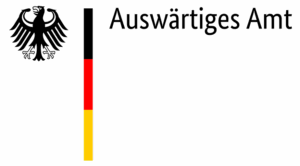
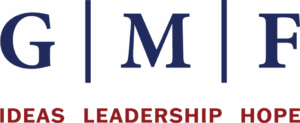

The views expressed in written conference materials or publications and by speakers and moderators do not necessarily reflect the opinion of donors or partners.
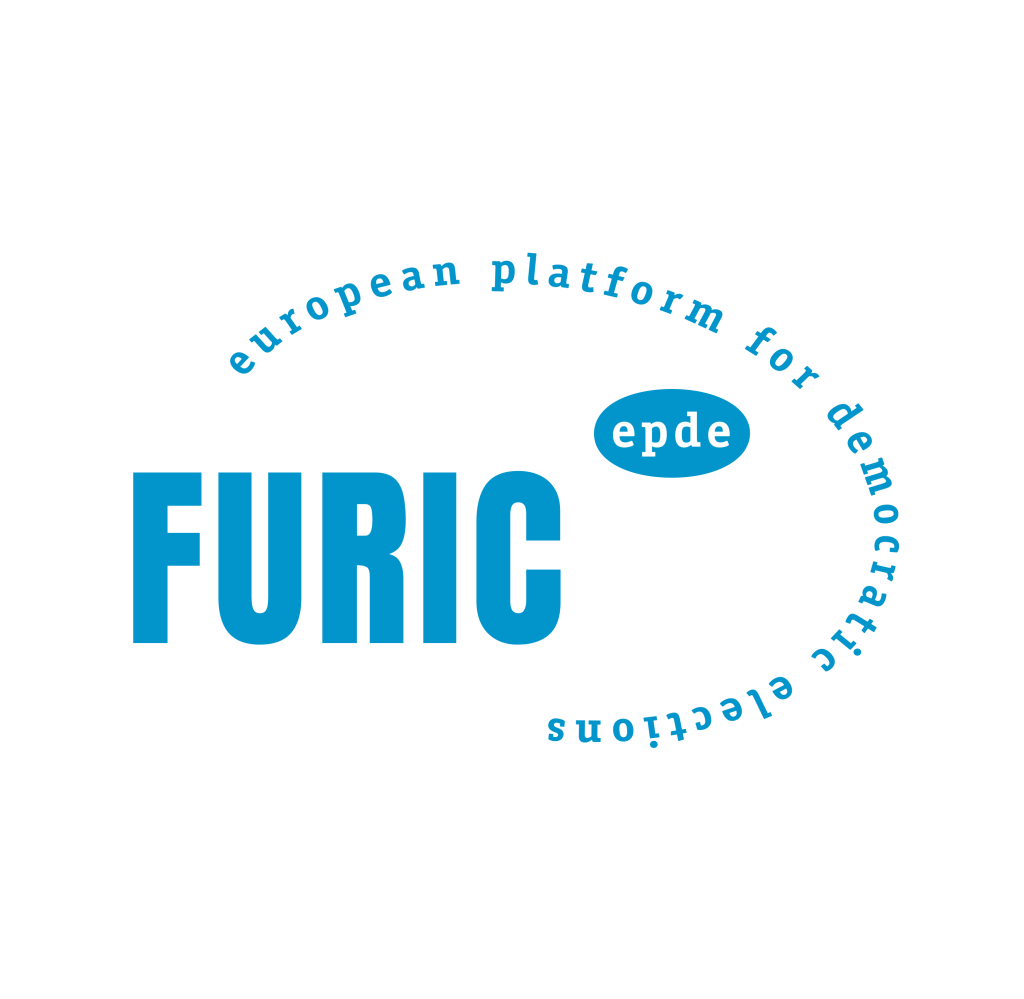
In 2023, FURIC brought together 97 representatives of 41 citizen observer organizations from 30 countries, 13 international and intergovernmental organizations, as well as prominent independent experts and journalists. While focusing primarily on the electoral follow-up in Europe, the conference benefited from the presence and contributions of international and citizen observer organizations working in Africa, Latin America, and East Asia.
The conference featured a high-level public session as well as closed expert sessions.
You may download a thorough event report, the conclusion document of the conference, as well as a list of participating organizations below.
Subscribe to our
newsletter
Sign up for our monthly newsletter
and receive the latest EPDE news
Subscribe to our
newsletter
Sign up for our monthly newsletter and receive the latest EPDE news